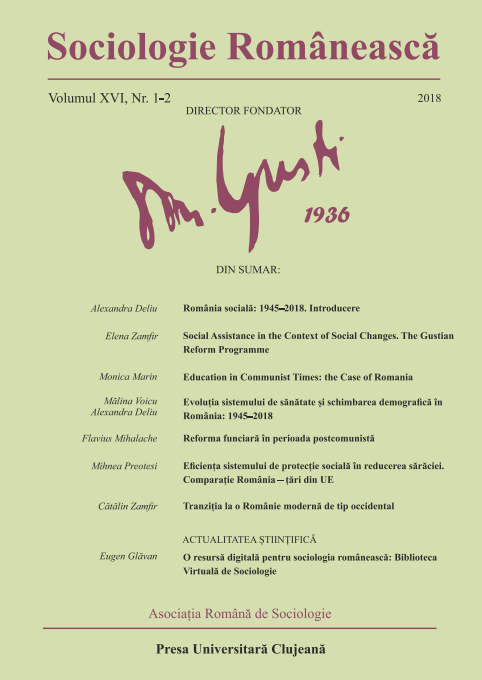Eficiența sistemului de protecție socială în reducerea sărăciei. Comparație România – țări din UE
The Efficiency of the Social Protection System in Reducing Poverty. A Comparison between Romania and other EU States
Author(s): Mihnea PreotesiSubject(s): Welfare services
Published by: Editura Eikon
Keywords: social policy; poverty; social protection system; social services;
Summary/Abstract: As regard to the risk of poverty and social exclusion but also to the relative poverty, Romania has significantly higher rates than the EU average. Although the social impact of the transition was an important one in all former communist countries, the comparison between them reveals the functioning of a different model of social development followed by Romania and Bulgaria during the transition period. The proposed analysis will start from identifying, in the general picture of poverty in nowadays Romania, those groups that are mostly vulnerable, those with the greatest potential for accentuating vulnerability and those with the most precarious addressability; it will also focus on the effectiveness of the social protection system in reducing the risk of poverty and in supporting each of these vulnerable categories. The approach will be carried out from a comparative perspective, the comparison with the EU countries being complemented by those from the group of former communist countries of UE. In addition to the quantitative comparison set up by the socio-economic indicators, the analysis will also use some of the results of the study visits made in Poland, Ireland and Catalonia, Spain, in the years 2016–2017, inside the project „Implementation of a policy-making system in the field of social inclusion at the level of MLSJ”, code SIPOCA 4, co-funded by the European Union (EU).
Journal: Sociologie Românească
- Issue Year: 16/2018
- Issue No: 01+02
- Page Range: 83-100
- Page Count: 18
- Language: Romanian

